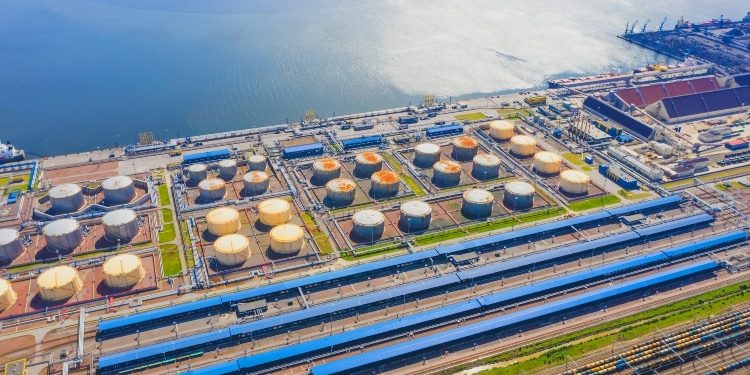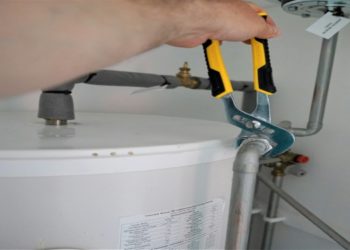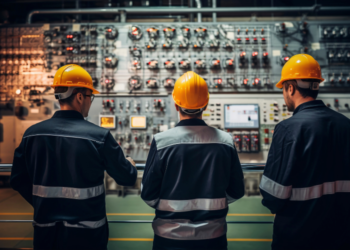In the relentless pursuit of sustainable practices and environmental responsibility, industries across the globe are continuously innovating to minimise their ecological footprint. Among these efforts, the oil and gas sector, notorious for its environmental impact, has been exploring various technologies to mitigate pollution and comply with stringent regulations. One such technology gaining prominence is scrubbers, which play a pivotal role in reducing harmful emissions.
Understanding Scrubbers
Scrubbers, in the context of the oil and gas industry, are devices designed to remove pollutants from industrial exhaust streams before they are released into the atmosphere. These pollutants primarily include sulphur dioxide (SO2), nitrogen oxides (NOx), particulate matter, and other harmful compounds generated during the combustion of fossil fuels.
Types of Scrubbers
There are several types of scrubbers utilised in the oil and gas industry, each catering to specific pollutants and operational requirements. A wet gas scrubber is the most common variant and they employ a liquid (usually water) to capture and neutralise pollutants through physical or chemical reactions. This method effectively traps particulate matter and acidic gases, significantly reducing their emission levels.
Another type gaining traction is dry scrubbers, which utilise sorbent materials to chemically react with pollutants, thereby neutralising them. Dry scrubbers are particularly useful in industries where water availability is limited or when dealing with specific pollutants that are better managed through chemical reactions.
Applications in Oil and Gas
In the oil and gas sector, scrubbers find widespread application in various processes, including refining, production, and transportation. Refinery operations, notorious for their emission of sulphur compounds and particulate matter, heavily rely on scrubbers to comply with environmental regulations and community standards.
In this context, it’s important to mention the role of well intervention companies. These companies provide crucial services to maintain, increase or restore the production levels of a well, which is a key aspect of the oil and gas sector.
Additionally, scrubbers play a crucial role in offshore drilling rigs and marine vessels. The maritime industry faces stringent emission regulations imposed by international bodies like the International Maritime Organisation (IMO). Scrubbers installed onboard ships enable compliance with these regulations by reducing sulphur emissions from burning high-sulphur fuel oils.
Moreover, in gas processing facilities, scrubbers like those from Syngas are employed to remove impurities from natural gas streams, ensuring product quality and meeting pipeline specifications. By scrubbing out contaminants such as hydrogen sulphide and carbon dioxide, gas processing plants enhance the safety and efficiency of downstream operations.
Environmental Benefits
The integration of scrubbers in the oil and gas industry yields substantial environmental benefits. By effectively reducing emissions of sulphur dioxide, nitrogen oxides, and particulate matter, scrubbers help mitigate air pollution and its associated health hazards. This is particularly critical in regions where industrial activities contribute significantly to air quality degradation and public health concerns.
Furthermore, scrubbers aid in combating acid rain, a phenomenon resulting from the release of sulphur dioxide and nitrogen oxides into the atmosphere. By capturing these pollutants before they can react with atmospheric moisture and form acidic compounds, scrubbers contribute to preserving ecosystems and safeguarding freshwater resources.
Challenges and Future Outlook
Despite their evident benefits, the widespread adoption of scrubbers in the oil and gas industry faces certain challenges. High initial costs, maintenance requirements, and technological complexities often deter companies from investing in scrubber installations. Additionally, regulatory uncertainties and evolving emission standards necessitate continuous innovation to ensure compliance while maintaining operational efficiency.
Looking ahead, the future of scrubbers in the oil and gas industry appears promising. Advancements in scrubber technology, including the development of more efficient and cost-effective variants, are anticipated to drive adoption rates. Moreover, increasing environmental consciousness and regulatory pressures are expected to incentivise companies to prioritise emissions reduction strategies, further propelling the demand for scrubber solutions.
Conclusion
Scrubbers play a crucial role in mitigating pollution and enhancing environmental sustainability in the oil and gas industry. As the sector continues to evolve, the integration of scrubber technologies represents a vital step toward achieving cleaner and more responsible energy production and consumption practices.
David Prior
David Prior is the editor of Today News, responsible for the overall editorial strategy. He is an NCTJ-qualified journalist with over 20 years’ experience, and is also editor of the award-winning hyperlocal news title Altrincham Today. His LinkedIn profile is here.


![7 Best POS Software in the UK [2026 Edition]](https://todaynews.co.uk/wp-content/uploads/2026/02/7-Best-POS-Software-in-the-UK-2026-Edition-360x180.png)










































































